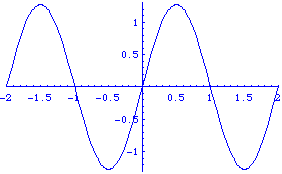Circuits and Systems Spring 2019


Syllabus:
Steady-state circuit analysis, sinusoidal excitation, phasor method, Fourier series, Fourier transforms, time
domain analysis, impulse response, convolution, sampling and modulation.
Prerequisites: Math. 20A-B-C, ECE 15, and ECE 35.
Class times and location (Spring 2019):
Lectures:
Tu Th 5:00-6:20p CENTR 113
Discussion:
Fri 12:00p-12:50p PCYNH 122,
Wed 5:00-5:50 WLH
MT1 May 2 (Thurs of week 5)
MT2 May 30 (Thurs of week 9)
Final: (Thurs) 06/13/2019 7:00p -9:59p Location TBA
Office Hours:
Prof. Franceschetti OH: After class or by appointment ATK4302 massimo@ece.ucsd.edu
Teaching Assistant JJ Kadifa
OH: Wed 12:45:-2:45
Email: jkadifa@eng.ucsd.edu
TA Location: Jacobs Hall 4506
Teaching Assistant Aditi Jain
OH: Fri 2:00-4:00
Email: aditijain1311@gmail.com
TA location: Jacobs hall 5101a
There will be extra office hours before the final on Tuesday from 3:30-5:30 in JACOBS 5101C
ECE tutoring center available for additional help Jacobs Hall 5101 M-F 10am-6pm
Class Organization and Grading:
There will be two Midterms and one Final plus homework assignments.
Class grade is: 0% Homeworks (however, see risk of penalty below), 25% each Midterm 50% final.
However, if either or both of your midterms exam brings down your weighted grade, then it (or they) will be ignored (this includes if you do not take either midterm exam for any reason whatsoever). In such cases, the weighting of the ignored midterm exam(s) will be added to the weight of the final exam.
Average letter grades will be in the B/B- range, as per ECE Department policy.
Exam Policy: For both the Midterm Exams and Final Exam you will be allowed to bring one sheet
of 8.5 inch x 11.0 inch of paper with notes on it (writing on both sides is ok)
that you may use during the exam. You may write anything on the two sides of
the paper that can help you during the exam. You may not have any attachments
to the paper with tape, Post-It notes, etc. Other than this one sheet of
paper, no other notes, books, electronic devices (e.g. calculators, computers,
I-pods, phones, etc) are allowed during the exam. Do not bring blank scratch
paper - there will be plenty of paper on the exam to work out problems. This
class does not stress memorizing formulas, but rather understanding how to
solve problems in probability from basic principles.
Homework Policy: The class uses a check your own homework policy. All attempted solutions must be submitted by the deadline otherwise you will be penalized up to 10% of the final grade. After submitting your homework you should check the posted solutions and if you have questions discuss them with the TA. All programming assignments should be completed by the deadline otherwise you will be penalized by 10% of the final grade.
Labs: The class does not have formal labs, but the homeworks will contain some programming assignments to be done using MATLAB. These practical problems are designed to gain a deeper understanding of the theory in a practical setting.
Study Material: Lecture notes are posted on-line. A good resource for additional material is the wikibook on signals and systems https://en.wikibooks.org/wiki/Signals_and_Systems We also maintain a blog with lecture topics and pointers to additional material in the announcements section of the website.
Additional material and problems can be found in the classic book “Signals and Systems” by Oppenheim and Willsky. Sample copies of past exams with solutions are posted on line. In addition to homeworks you are advised to attempt additional problems from any signals book. We keep an agenda of the material covered and possible problem sets on-line. Some old exams can be found in the handout section. Additional old exams of various UCSD professors are posted here